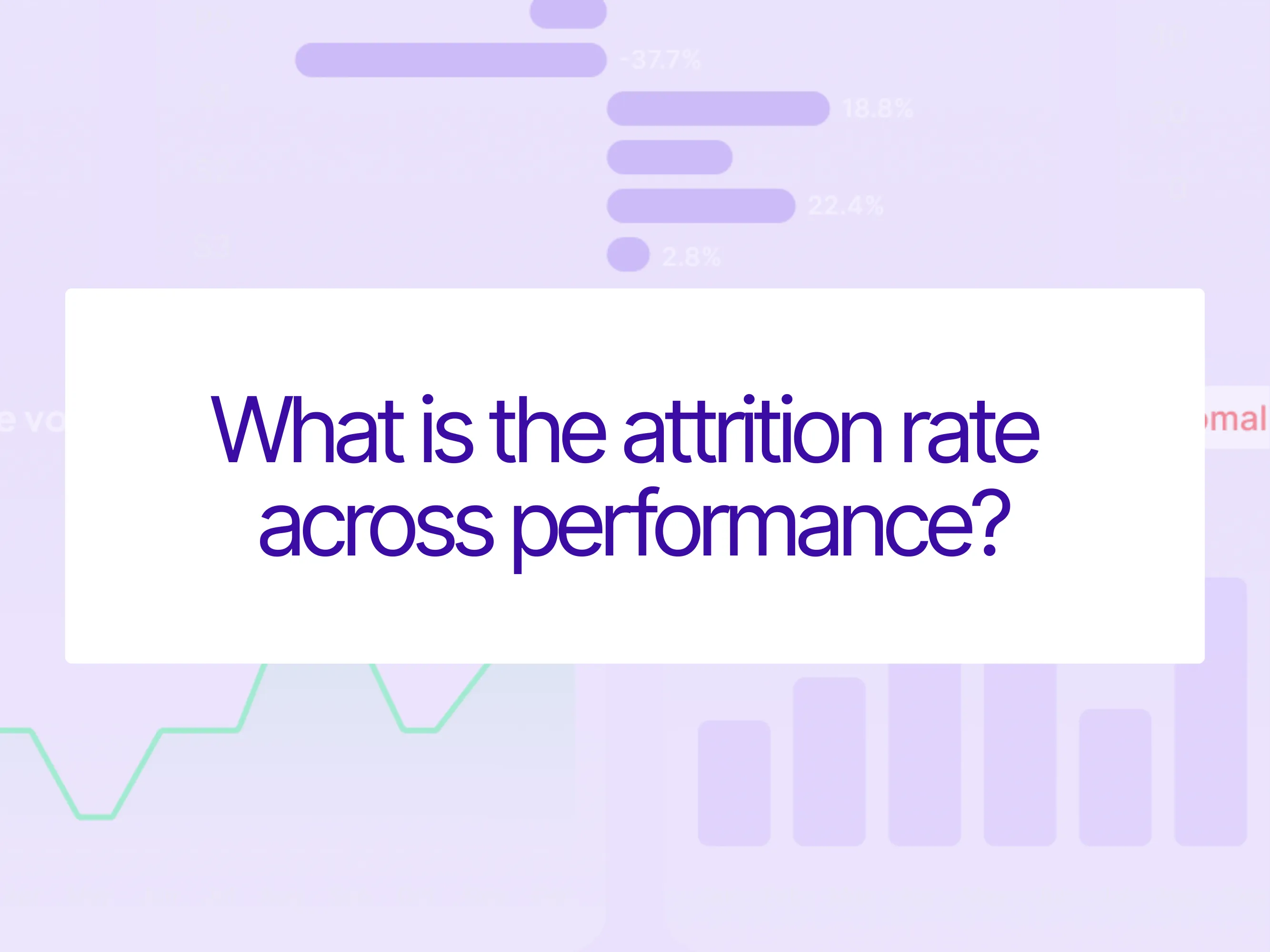Attrition Rate by Performance — Are We Losing Our Top Performers?
When high-performing employees leave, the impact is especially significant. This analysis links performance data with the attrition rate to show whether an above-average number of high performers are exiting the company. You can quickly spot if certain roles, teams, or performance groups show a higher risk of churn. With these people analytics insights, you can design targeted retention measures to keep key talent and preserve institutional knowledge.
What does the analysis of the attrition rate mean in terms of performance?
This analysis shows how employee turnover is based on their performance — i.e. which performance classes leave the company particularly frequently or rarely.
It provides important information as to whether top performers, average performers or employees with development needs are particularly affected.
Why that's important:
- Understanding talent loss: Identify whether particularly high-performing employees are leaving to plan countermeasures.
- Strategic personnel planning: Trends in fluctuation by performance help to steer succession planning, retention measures and career development in a targeted manner.
- Make HR decisions based on data: The analysis supports data-driven decisions for talent management and long-term organizational stability.



Turnover rate by performance group
The analysis shows Clear Differences In the turnover rate, depending on the performance rating of employees (over the last 12 months):
Key findings:
- Top Performers (5): 13.3% Turnover rate — the lowest among all assessed groups
- High Performer (4): 12.5% Attrition rate — also very low
- Average Performer (3): 16.4% Turnover rate
- Below Average Performer (2): 17.3% Turnover rate
- No review: 21.9% Attrition rate — the highest value
Key observations:
Positive Retention Among Top Performers: The best performers (top and high-performance groups) have the lowest turnover rates from 12.5-13.3%. This shows that the company is successfully retaining its most valuable talents.
Risk among unrated employees: The group “No Rating” has 21.9% The highest turnover rate — almost twice as high as among top performers. This suggests that lack of performance ratings could be a risk factor for departures.
Gradual increase: It shows a Clear Trend: The lower the performance rating, the higher the turnover rate (with the exception of the unrated group).
This is a healthy pattern, as it shows that mainly weaker performers are leaving the company while the top performers can be retained.
.webp)






.png)
.svg)


.png)